10 start with P start with P
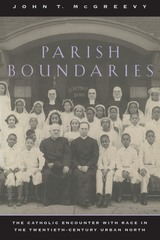
"Parish Boundaries can take its place in the front ranks of the literature of urban race relations."—Jonathan Dorfman, Washington Post Book Review
"A prodigiously researched, gracefully written book distinguished especially by its seamless treatment of social and intellectual history."—Robert Orsi, American Historical Review
"Parish Boundaries will fascinate historians and anyone interested in the historic connection between parish and race."—Ed Marciniak, Chicago Tribune
"The history that remains to be written will rest on the firm foundation of Mr. McGreevy's remarkable book."—Richard Wightman Fox, New York Times Book Review
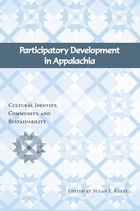
Emerging from a critical analysis of the modern development process, the participatory development approach advocated in this book assumes that local culture has value, that local communities have assets, and that local people have the capacity to envision and provide leadership for their own social change. It thus promotes better decision making in Appalachian communities through public participation and civic engagement.
Filling a void in current research by detailing useful, hands-on tools and methods employed in a variety of contexts and settings, the book combines relevant case studies of successful participatory projects with practical recommendations from seasoned professionals. Editor Susan E. Keefe has included the perspectives of anthropologists, sociologists, and others who have been engaged, sometimes for decades, in Appalachian communities. These contributors offer hopeful new strategies for dealing with Appalachia's most enduring problems-strategies that will also aid activists and researchers working in other distressed or underserved communities.
Susan E. Keefe is professor of anthropology at Appalachian State University. She is the editor of Appalachian Mental Health and Appalachian Cultural Competency: A Guide for Medical, Mental Health, and Social Service Professionals.
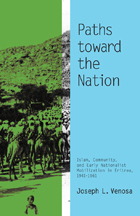
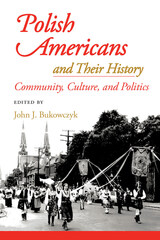
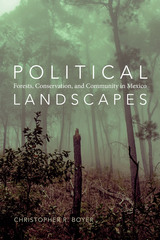
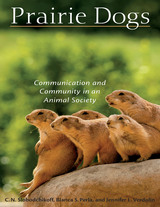
Constantine Slobodchikoff and colleagues synthesize the results of their long-running study of Gunnison’s prairie dogs (Cynomys gunnisoni), one of the keystone species of the short-grass prairie ecosystem. They set their research in the context of the biology of the five Cynomys species found in the United States and Mexico, and detail their investigation into the prairie dogs’ sophisticated system of barks, yips, and chirps, which Slobodchikoff argues represents a referential communication capable of fine distinctions among predators.
Seen as vermin that spoiled valuable rangeland, prairie dogs were long the subject of eradication campaigns and are now threatened by habitat loss and the loss of genetic diversity. The authors hope their research will help to pull the prairie dog back from the brink of extinction, as well as foster an appreciation of larger conservation challenges. By examining the complex factors behind prairie dog decline, we can begin to understand the problems inherent in our adversarial relationship with the natural world. Understanding these interactions is the first step toward a more sustainable future.
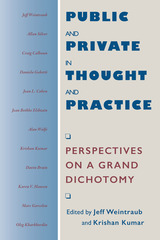
In contexts ranging from friendship, the family, and personal life to nationalism, democratic citizenship, the role of women in social and political life, and the contrasts between western and (post-)Communist societies, this book brings out the ways the various uses of the public/private distinction are simultaneously distinct and interconnected. Public and Private in Thought and Practice will be of interest to students and scholars in disciplines including politics, law, philosophy, history, sociology, and women's studies.
Contributors include Jeff Weintraub, Allan Silver, Craig Calhoun, Daniela Gobetti, Jean L. Cohen, Jean Bethke Elshtain, Alan Wolfe, Krishan Kumar, David Brain, Karen Hansen, Marc Garcelon, and Oleg Kharkhordin.
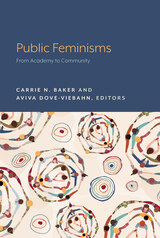
The field of feminist studies grew from the U.S. women’s movements of the 1960s and 1970s and has continued to be deeply connected to ongoing movements for social justice. As educational institutions are increasingly seeing public scholarship and community engagement as relevant and fruitful complements to traditional academic work, feminist scholars have much to offer in demonstrating different ways to inform and interact with various communities. In Public Feminisms: From Academy to Community edited by Carrie N. Baker and Aviva Dove-Viebahn, a diverse range of feminist scholar-activists write about the dynamic and varied methods they use to reach beyond the traditional academic classroom and scholarly journals to share their work with the public.
Part one explores how feminist scholars engage broader audiences through art, media, and public programming, including essays on a public discussion series teaching intersectional feminist analysis of popular films, and a podcast from Latina scholars discussing issues of reproductive justice, social justice, motherhood, sexuality, race, and gender. Part two focuses on activism and public education, including essays on “Take Back the Night,” and archiving the women’s march protests. Part three turns to public writing and scholarship, including an essay on elevating the perspectives and voices of underrepresented creatives in the film and television industry. Part four explores feminist pedagogies for community engagement and for teaching public feminisms.
Accessible and engaging to a broad range of readers, the essays in this volume are a rich resource for scholars and students interested in infusing their academic knowledge into the public sphere. With this timely book, the editors offer an opportunity to reflect on the meaning and importance of community engagement and highlight some of the important public-facing work feminist scholars are doing today. Faculty, graduate, and undergraduate students, as well as administrators hoping to increase their schools’ connections to the community, will find this volume indispensable.

The decentralization of public policy from the federal government to state and local governments offers increased opportunities for ordinary citizens to participate directly in public policymaking. Yet these opportunities may not be equally shared. Due to a variety of factors, low-income citizens have long been denied a meaningful role in the public life and governance of our country.
By contrast, the essays in this volume explore how low-income citizens have successfully affected public policy. The book is built around six case studies, all from Texas, that cover education finance and reform, local infrastructure provision, environmental protection, and indigent health care.
This research illuminates several issues of national importance, including how communities gain standing and recognition for themselves and their issues, how policy agendas are defined, how communities mobilize technical and institutional resources, and how they form coalitions and alliances to accomplish their goals.
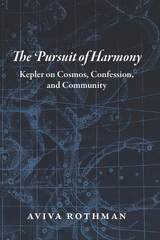
Harmony, Rothman shows, was both the intellectual bedrock for and the primary goal of Kepler’s disparate endeavors. But it was also an elusive goal amid the deteriorating conditions of his world, as the political order crumbled and religious war raged. In the face of that devastation, Kepler’s hopes for his theories changed: whereas he had originally looked for a unifying approach to truth, he began instead to emphasize harmony as the peaceful coexistence of different views, one that could be fueled by the fundamentally nonpartisan discipline of mathematics.
READERS
Browse our collection.
PUBLISHERS
See BiblioVault's publisher services.
STUDENT SERVICES
Files for college accessibility offices.
UChicago Accessibility Resources
home | accessibility | search | about | contact us
BiblioVault ® 2001 - 2024
The University of Chicago Press









